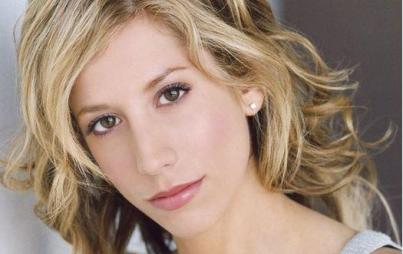
Ravishers, on this fine Friday, we bring you a question for your weekend dinner party: what's the appropriate response to the strange phenomenon that is plastic surgery?
This question is in the news (again) thanks to the current tizzy over the—if the tabs are to be believed—dramatic and sensational transformation (!!) of Alexa Ray Joel, the talented singer-songwriter-performer who also happens to be the progeny of 80s power couple Billy Joel and Christie Brinkley.
A photo of Alexa looking all grown up in heavy makeup and a cleavage-bearing corset led to speculation that she's had everything from a boob job to a chin chisel done. The reactions got so heated, Alexa herself pushed back, at one point jumping into the comments thread of an US Weekly story to note that the "before" photo it was using was from when she was 13 years old.
Alexa also slammed all the nip-tuck rumors as 100% false, while copping to one surgery she had already been candid about: a nose job. On Instagram, she wrote:
I liked everything else about my physical appearance, but [my nose] always bothered me a bit. I had thought about it for about five years. I think I look more like me than my father's daughter now.
Naturally, this has prompted even more fretting about why this young girl, who by all accounts was very pretty before, went under the knife. Hence, our question of the day.
To Slice or not to Slice?
This is a debate that has come up among friends many times before. Personally, I've often argued that cosmetic surgery is a tragic manifestation of our look-obsessed culture. It's also highly privileged, allowing people with lots of money to possess not just the perfect house or car, but the "perfect" DD breasts or supermodel nose. In The Hunger Games, the over-the-top surgeries of those in the Capitol provided savvy commentary on this classist undercurrent.
The opposing side argues that some people genuinely struggle with the way they look and it plagues their daily lives. So if tweaking something makes them significantly happier, without hurting anybody else, why throw stones? It's also easier for those who already have relatively "normal"-looking features to be judgy and say they'd never do that. But this reaction, too, is the product of privilege—in this case, of luckier biology.
As always, it seems, the devil's in the details. Of the people who go under the knife (about 1.7 million last year, according to the American Society of Plastic Surgeons), many do so to tweak one specific bothersome feature, as was the case with Alexa and her nose. This is a huge difference from the "living Barbies" of the world who are so altered and plastic-looking, they no longer resemble a homosapien, embodying all that is monstrous about our obsession with imposed beauty ideals.
It's worth noting that the American Society of Plastic Surgeons report also reveals that plenty of procedures are simply trendy, feeding a vicious cycle of never-ending nip-tucks to manifest a fleeting ideal. Last year, butt implants and calf augmentations shot up 16% and 32%, respectively. Meanwhile, in 2012, "lip reduction" made its first appearance on the popular surgeries list as a direct reaction to the lip augmentation that had previously been all the rage.
This brings into sharp focus the impossibility of physical "perfection"—by definition it's constantly changing. The fact that many women (and men) spend thousands chasing a ridiculous ideal that can never be achieved reeks of extreme vanity and profound insecurity. And sadly, surgeons capitalize on these broken beauty-seekers and laugh all the way to the bank.
No matter where you stand on this fascinating issue, perhaps we can at least agree to leave Alexa alone. The girl had a nose job. It made her happy. She's not a freak or a tragedy. But she has brought up some interesting questions about the act of plastic surgery itself. (Again.)
Now...debate!
Image: Stefano DiBenedetto/Wikimedia Commons






